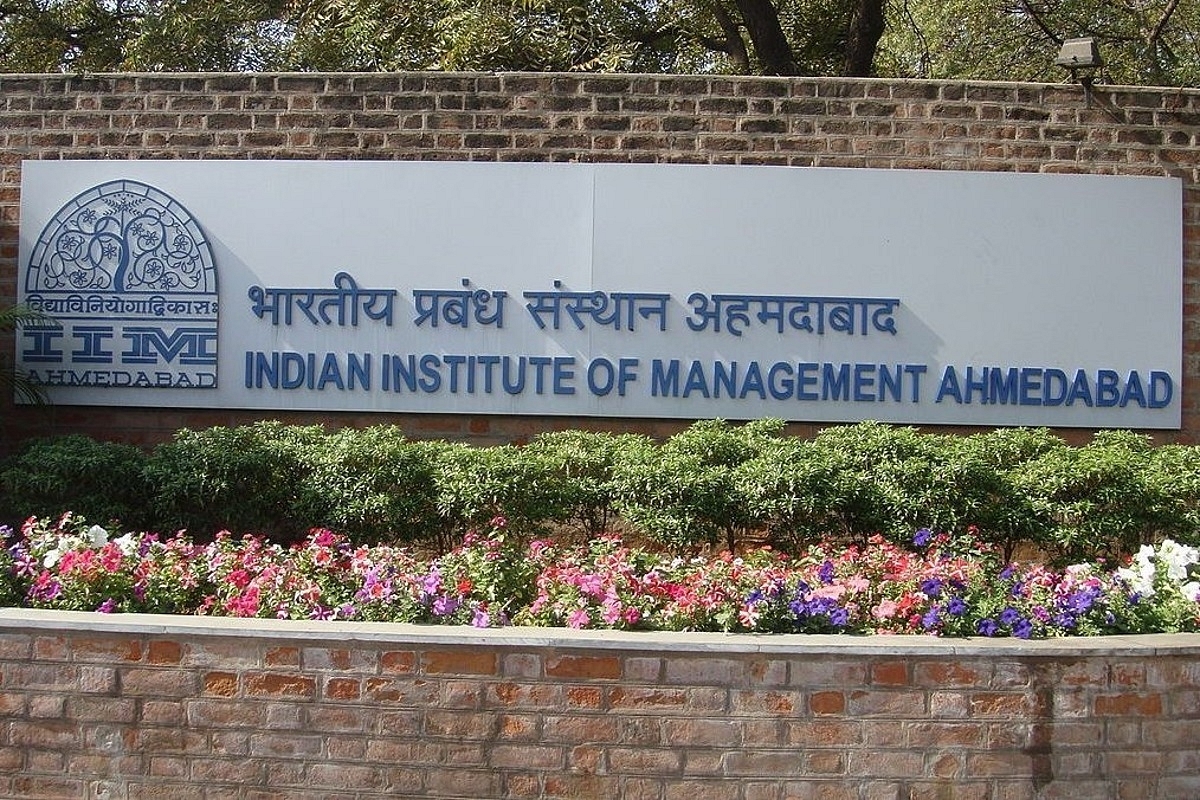News Brief
Government Gets Authority To Dissolve IIM Boards, Grounds For Dissolution To Be Outlined In New Rules Soon

IIM Ahmedabad (Pic Via Wikimedia)
The Centre will have the power to dissolve the board of any Indian Institute of Management under certain grounds which may include include persistent disobeying of government orders, public interest, and the board's failure to perform its duties.
In an IIM, the Board of Governors is the top decision-making body while the government acts through the Visitor of the IIMs, who is the President of India.
Earlier, the power to audit the functioning of the institute and remove or appoint the directors was solely in the hands of the IIM's Board of Governors, with minimal intervention from the Union government.
However, this dynamic shifted three months ago when the Ministry of Education amended the IIM Act to assert more authority over the business schools, including giving itself powers to dissolve an IIM Board.
The three grounds for dissolution of an IIM Board are expected to be spelt out in the amended Rules (under the revised IIM Act) being finalised now, Indian Express reported citing sources.
The amendments made to the IIM Act in August explicitly granted the President, in her role as the Visitor of all IIMs, the power to dissolve the Board, allowing the Ministry to establish an interim Board in its stead.
The scope of this authority is currently being delineated under the Rules of the amended IIM Act.
For example, although the IIM Act amendment gave the President the power to dismiss an IIM director, the forthcoming Rules are likely to clearly mandate that the institute's Board must adhere to the Visitor's decision in this respect, leaving no scope for debate or negotiation.
For the first time, the Rules are also expected to firmly establish the educational qualifications of an IIM Director. The Ministry is reportedly keen on the amended Rules to specify that any candidate or applicant for the position of an IIM Director should possess a first-class degree at both the Bachelor’s and Master’s levels, in addition to a PhD or an equivalent qualification.
As per the existing, unmodified Rules, the academic qualifications for an IIM Director are described as “a distinguished academic with a PhD or equivalent”.
Original Paragraph 9: The provision on educational qualifications comes in the wake of the IIM Rohtak case. Here, Dheeraj Sharma, the incumbent Director, had misrepresented his academic credentials during his initial appointment, which occurred before the enactment of the IIM Act.
This focus on educational qualifications comes in the wake of the situation at IIM Rohtak. In this case, Dheeraj Sharma, the current Director, had misrepresented his academic credentials during his initial appointment, which took place before the IIM Act was enacted.
Sharma had a second class Bachelor’s degree, instead of a first class, which was a mandatory eligibility requirement for the job as per the government’s advertisement.
Following this, even after the Ministry of Education discovered the fraud, it could not stop Sharma from being reappointed for a second term last year. This was due to the fact that, at the time of his reappointment, the IIM Rohtak Board had complete authority under the IIM Act to select the director, and they had not made a first-class Bachelor's and Master's degree a compulsory requirement.
The amendment of the Rules under the IIM Act has been necessitated by recent changes to the law.
In a surprise move, the Ministry had introduced a bill to amend the IIM Act during this year's monsoon session, significantly reducing the complete autonomy previously granted to the 20 IIMs with the 2018 enactment of the IIM Act.
The changes were made to entrust the management accountability of the IIMs with the President, who will be the Visitor to the premier B-schools with powers to audit their functioning and remove or appoint directors. Earlier, these powers were vested in the IIM Board with the Union government having little say in the matter.
Support Swarajya's 50 Ground Reports Project & Sponsor A Story
Every general election Swarajya does a 50 ground reports project.
Aimed only at serious readers and those who appreciate the nuances of political undercurrents, the project provides a sense of India's electoral landscape. As you know, these reports are produced after considerable investment of travel, time and effort on the ground.
This time too we've kicked off the project in style and have covered over 30 constituencies already. If you're someone who appreciates such work and have enjoyed our coverage please consider sponsoring a ground report for just Rs 2999 to Rs 19,999 - it goes a long way in helping us produce more quality reportage.
You can also back this project by becoming a subscriber for as little as Rs 999 - so do click on this links and choose a plan that suits you and back us.
Click below to contribute.
Latest